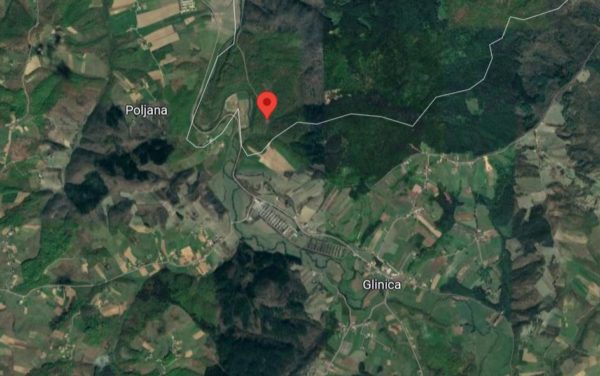The only question I have is: Why they deport me, I’m a old woman?
| 22.03.2022 | Staro Selo Topusko Croatia | No Name Kitchen | 45.212344, 15.929066 | Croatia | Bosnia | yes | yes | yes | no | no | no | no | 19 - 61 | 4 | Afghanistan, Iran | detention | unknown | no violence used | at least 1 officer in dark blue uniform, 4 officers in dark blue uniforms, large white car with a blue stripe on the side |
The respondent was a 61-year-old woman from Iran at the time of taking the testimony. The pushback took place on the morning of the 22nd of March 2022 from Croatia to the north-western territory of Bosnia and Herzegovina.
The transit group consisted of her, her daughter (37 years old), and two young men from Afghanistan (19, and 20 years old). They left the bus station in Velika Kladuša on the evening of the 21st of March 2022 at around 8.30 pm. The respondent stated that the group walked through forested areas for about four hours. She emphasized that the group could not walk fast because of her physical conditions, such as knee problems and diabetes:
“I’m old, I have Diabetes, I have a knee problem, I cannot walk so long”.
The group had planned to rest and sleep from midnight to 3.30 am. However, due to the cold temperatures (minus 7 degrees), this was not possible. The respondent described shivering and being afraid of freezing to death. They continued walking around 4 am and reached a place that the respondent describes as the police station of Cetingrad at 5.30 am in the morning. All members of the transit group were asked to give their personal belongings when entering the police station. The respondent asked for asylum as soon as she spoke to an officer in a dark blue uniform. She remembered at least one officer being present in the police station, but not the exact number. They were then brought to a detention room, waiting for further action.
The group waited there for what felt like one hour for the respondent. Since they were not asked for any fingerprints the respondent expected to be pushed back. After their stay in the detention room, the members of the transit group were asked to get into a large white car with a blue stripe on the side. The description of the car matches those of the prisoner transport vans normally driven by the Croatian border police. The respondent stated that the ride in the car seemed very long to her and after what felt like another hour they stopped and were asked to get out, handed over their personal belongings, and pushed back with the words "Go, go Bosnia". There were four officers in dark blue uniforms, whose descriptions is matching the description of the Croatian border police.
The final pushback location was at the Croatian-Bosnian border, Staro Selo Topusko, Croatia, near the village of Glinica in Bosnia and Herzegovina (45.212344, 15.929066).
[caption id="attachment_19918" align="alignnone" width="600"] pushback location: Staro Selo Topusko, Croatia, 45.212344, 15.929066[/caption]
From the pushback location, the group had to walk around 6 km to the next road to take a bus back to their starting point in Velika Kladuša. The respondent described that being pushed back so far away from their starting point was a really harsh condition for her, especially because of her physical condition: “Too tired, I could not sit, I could not walk, and I’m too tired”. They took the bus back to Velika Kladuša at 10.37 am from Glinica and reached their accommodation in Velika Kladuša around 12 am.
Being pushed back far from the starting points is a form of violence that can have severe consequences for the mental health state of the people involved in those pushbacks:
“I’m not scared of 'game', of hills, cold, everything, but deport is too much problem, because after I don’t have any energy, nothing”.
pushback location: Staro Selo Topusko, Croatia, 45.212344, 15.929066[/caption]
From the pushback location, the group had to walk around 6 km to the next road to take a bus back to their starting point in Velika Kladuša. The respondent described that being pushed back so far away from their starting point was a really harsh condition for her, especially because of her physical condition: “Too tired, I could not sit, I could not walk, and I’m too tired”. They took the bus back to Velika Kladuša at 10.37 am from Glinica and reached their accommodation in Velika Kladuša around 12 am.
Being pushed back far from the starting points is a form of violence that can have severe consequences for the mental health state of the people involved in those pushbacks:
“I’m not scared of 'game', of hills, cold, everything, but deport is too much problem, because after I don’t have any energy, nothing”.
